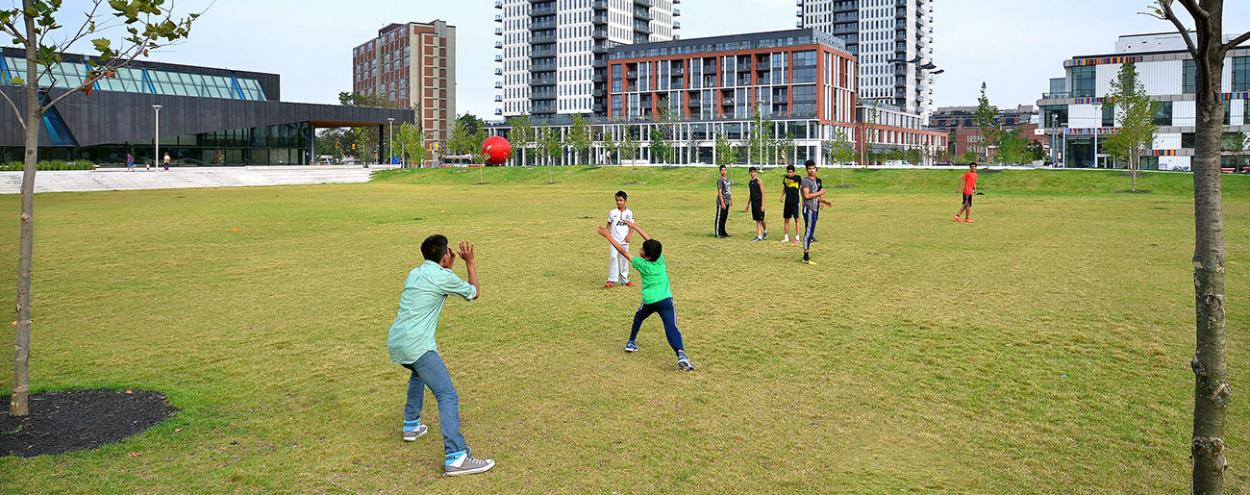
A successful community needs space guided by the needs of its residents—in other words, programming, places and protocols designed for those who use these spaces most. For youth, in particular, access to safe and reliable public spaces helps to stave off isolation and alienation at a crucial point in their lives.
George Brown College was approached by Toronto Community Housing and the Regent Park Safety Network (RPSN) to support a project that would task four young people from the Regent Park community to learn the basics of research, then conduct their community-focused project to help shape future development and to support Black youth excellence.
“Despite some of the historical economic challenges, and the residual effects of structural oppression, Regent Park is continuously looking to build on their strengths,” says principal investigator Melissa Teles. “The neighbourhood is committed to the work of community development, wanting to create even better spaces for its residents.”
Teles, a professor in the School of Social and Community Services at George Brown College, is building on her more than two decades of experience in child and youth care. She was joined on the project by Jennifer Grant, then a faculty member in the same school and recently named Director of George Brown’s Office of Anti-Racism, Equity and Human Rights Services. They launched a project through the George Brown IGNITE fund, which provides support for George Brown employees engaged in original research.
Teaching teens research and data analytics skills
The four researchers recruited were between 14-16 years old, all living in the Regent Park area. “None of the youth researchers had exposure or connections to community projects, or any research exposure at all,” Teles says. “They had to learn what research is and how to do it.”
This project has also been made possible by the commitment and dedicated hard work of Caitlin Flannery, a student from the Child and Youth Care program. Flannery was instrumental in the development and delivery of the research workshops offered to the youth researchers and their youth workers.
Through workshops and experience-based learning, the young people learned how to develop questions for surveys, ethically collect information and use and analyze data — a valuable modern skill set, especially as the demand for those skilled in data analytics grows. They also developed transferrable soft skills (interviewing, presenting, confidence, communication).
Positive research results
The results? “There was excellent engagement from community members, with data gathered from almost 200 young people,” Grant says. “Beyond that, it was a meaningful process where the voice and needs of young people were centred. Now they have an opportunity to share their research about their community, with their community, which is really exciting.”
“The outcomes of the research provided insights and [gave] youth a voice within the community,” says Isa Ali, Youth Empower Youth Project Coordinator at RPSN. “The findings were shared with the community and we’ll also be developing a program specifically out of the recommendations.”
Though this is an early phase of the project, the team is hopeful that the model could be replicated and applied in any community where there’s a desire to rethink spaces for young people.
“It was beautiful to be invited into a community that supports its young people in embracing leadership,” Teles says. “It was incredible to watch the engagement with, and commitment to, learning the building blocks of research. But the real enduring skill built here was an awareness of self and their capacity for new learning.”
Image credit: View of Regent Park south, Daniels Corp.
